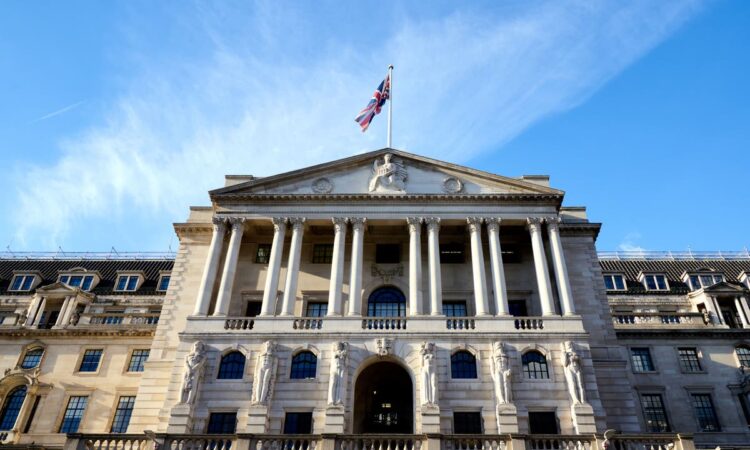
The hit to the UK economy from Brexit is coming through faster than had previously been expected, the Bank of England deputy governor has said.
Ben Broadbent said it was still not clear whether the effects of EU withdrawal were a reason why the UK is forecast to do worse than other major economies this year.
His comments follow a warning by the International Monetary Fund (IMF) that Britain alone of the leading economies is expected to contract this year.
Labour said it underlined the needed for the UK to build a new trading relationship with its closest neighbour and trading partner.
Speaking at a press conference following the Bank’s latest interest rate hike, Mr Broadbent, the deputy governor for monetary policy, said they had not changed their overall assessment of the economic impact of Brexit.
He acknowledged, however, that they had not expected to see the effect on growth figures to come through quite so quickly.
“Brexit … has been something that has pulled on our potential output in our country and that’s been our assessment for many years,” he said.
“We’ve not changed our estimate of the long-running effects, but we’ve brought some of them forward and we think they’re probably coming in faster than we first expected.”
We want a stronger, more productive relationship with our nearest neighbours and trading partners
Rachel Reeves
He added: “Yes it (Brexit) is having some effect on growth, although ultimately no bigger effect than we assessed some years ago.
“Based on the numbers for trade and some degree for the numbers on investment, we think these effects are coming through faster than initially envisaged.”
Overall, the Bank said that while it believed the UK was still heading for a recession, the downturn may be shorter and shallower than previously expected.
The Governor, Andrew Bailey, said Brexit was one of a series of “significant economic shocks” to have had an impact along with the Covid pandemic and Russia’s invasion of Ukraine and the ensuing rise in energy costs.
“These shocks have held back both productivity and labour supply,” he said.
For Labour, shadow chancellor Rachel Reeves said the latest figures showed the UK needed to build bridges with Brussels.
“We do need to improve our trading relationship and the deal that we have with the European Union because the numbers today on exports, on investment … we need to turn that around,” she told BBC Radio 4’s The World At One.
“We want a stronger, more productive relationship with our nearest neighbours and trading partners.”





